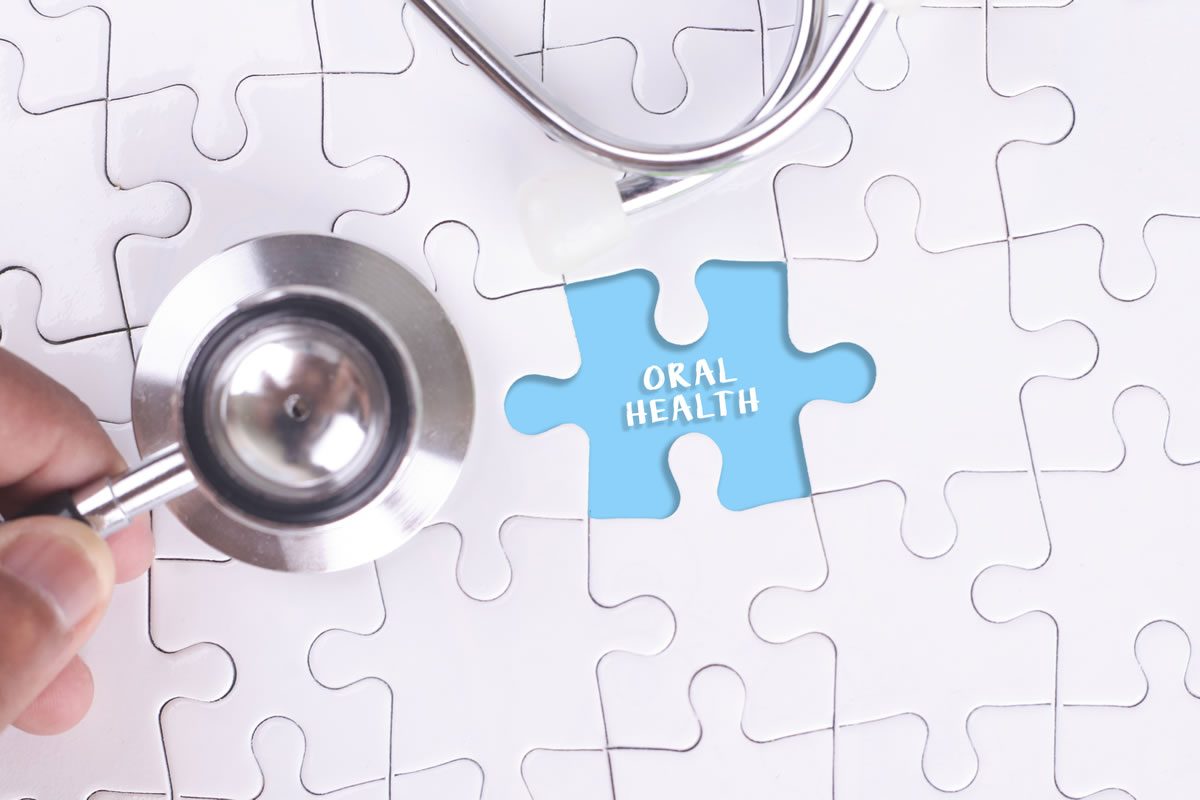The connection between dental health and general health isn’t obvious to most people. However, research shows that oral health has a greater impact on your overall health than you may realize. Taking care of your teeth not only gives you a beautiful smile but it also improves the health of your whole body. If you’re neglecting your teeth, you could be setting yourself up for serious health problems in the future.
You may also be interested in the companion article: How Your General Health Issues May Impact Your Oral Health
The Connection Between Oral Health and General Health
Our mouths are teeming with bacteria. This is normal and most are harmless. Daily brushing and flossing keep the levels of bacteria under control. When oral care is lacking, however, problems can occur. The bacteria in your mouth multiply and combine with the sugar in food to make acids. These acids attack the tooth causing cavities, gum disease, tooth decay, and periodontitis, which can lead to infections that spread to other parts of the body. Here are some of the health problems associated with poor oral health.
Heart Disease: Heart Attacks and Strokes
When you don’t brush and floss your teeth daily, it leads to a build-up of plaque on the teeth. This can increase your risk for a heart attack or stroke. Cholesterol isn’t the only thing that blocks arteries. A study by the American Heart Foundation found that the bacteria in oral plaque can contribute to blocked arteries. Plaque gets into the bloodstream and can become lodged in an artery in the heart. This can lead to a heart attack or stroke.
Heart Disease: Endocarditis
When colonies of bacteria build up in the mouth, they attack the teeth and gums and can cause gingivitis (gum disease). Gingivitis causes gums to bleed. Once that happens, bacteria move into the bloodstream and can travel to other areas of the body. When a colony reaches the heart, it can lead to a heart condition called endocarditis — an infection of the inner lining of your heart chambers or valves.
Diabetes
Gum disease can also complicate diabetes. Periodontitis (inflammation of the gums) is a serious dental problem in which the gums become so inflamed that they start to pull away from the teeth and form gaps. These gaps can quickly become infected. For someone with diabetes, periodontitis makes it difficult for the body to properly absorb insulin medication that lowers blood sugar levels. In turn, persistent high blood sugar exacerbates infections in the mouth, which causes more inflammation. It’s a vicious cycle. For this reason, it is vital that diabetics maintain good dental health.
Pneumonia
Air flows through your mouth and into your lungs. If there is an unhealthy amount of bad bacteria in your mouth, this bacteria can easily find their way into your lungs and cause pneumonia or other respiratory problems. The elderly, in particular, should make sure that they continue to take care of their teeth, including dentures, as an illness like pneumonia can become life-threatening when it strikes an older person.
Dental Problems Can Affect Pregnancy
Pregnant women know to take prenatal vitamins, avoid certain foods, and go for regular check-ups. One thing they may not know is that dental health can also affect their pregnancy and unborn baby. In addition to visits to the gynaecologist, expectant mothers should also schedule a checkup with their dentist.
The increase in pregnancy hormones can worsen existing dental problems. What’s more alarming is that evidence shows that periodontitis puts babies at risk of being born prematurely or with low birth weight. Maintaining good dental health during pregnancy is an important step in protecting both you and your baby.
Poor Oral Health Puts HIV Patients at Risk for Infection
People living with HIV are vulnerable to infections and the complications from those infections can be fatal. Minor infections can escalate rapidly due to the person’s weakened immune system. Therefore, people living with HIV need to be extra vigilant when it comes to safeguarding all aspect of their health, including dental health.
Poor oral health puts a person with HIV at greater risk of picking up infections that can cause their overall health to decline. In fact, over 30 oral conditions have been connected to HIV disease. Oral conditions such as mucosal lesions (painful mouth ulcers) are common in people who have HIV and AIDS. In addition, several antiviral medications used to treat HIV causes dry mouth. With reduced saliva in the mouth, teeth have less protection against cavities.
Your mouth is the gateway to the rest of your body. Food, liquid, air, and germs all enter the body through the mouth. Don’t underestimate the impact your oral health has on your overall health. Scientists continue to learn more about the link between oral health and conditions such as heart disease and diabetes. Maintaining good dental health is an important measure you can take to lower your risk of developing other health issues.
You may also be interested in the companion article: How Your General Health Issues May Impact Your Oral Health




 December is finally here, and if you’re not already hyped about the holidays, you’re about to […]
December is finally here, and if you’re not already hyped about the holidays, you’re about to […]

